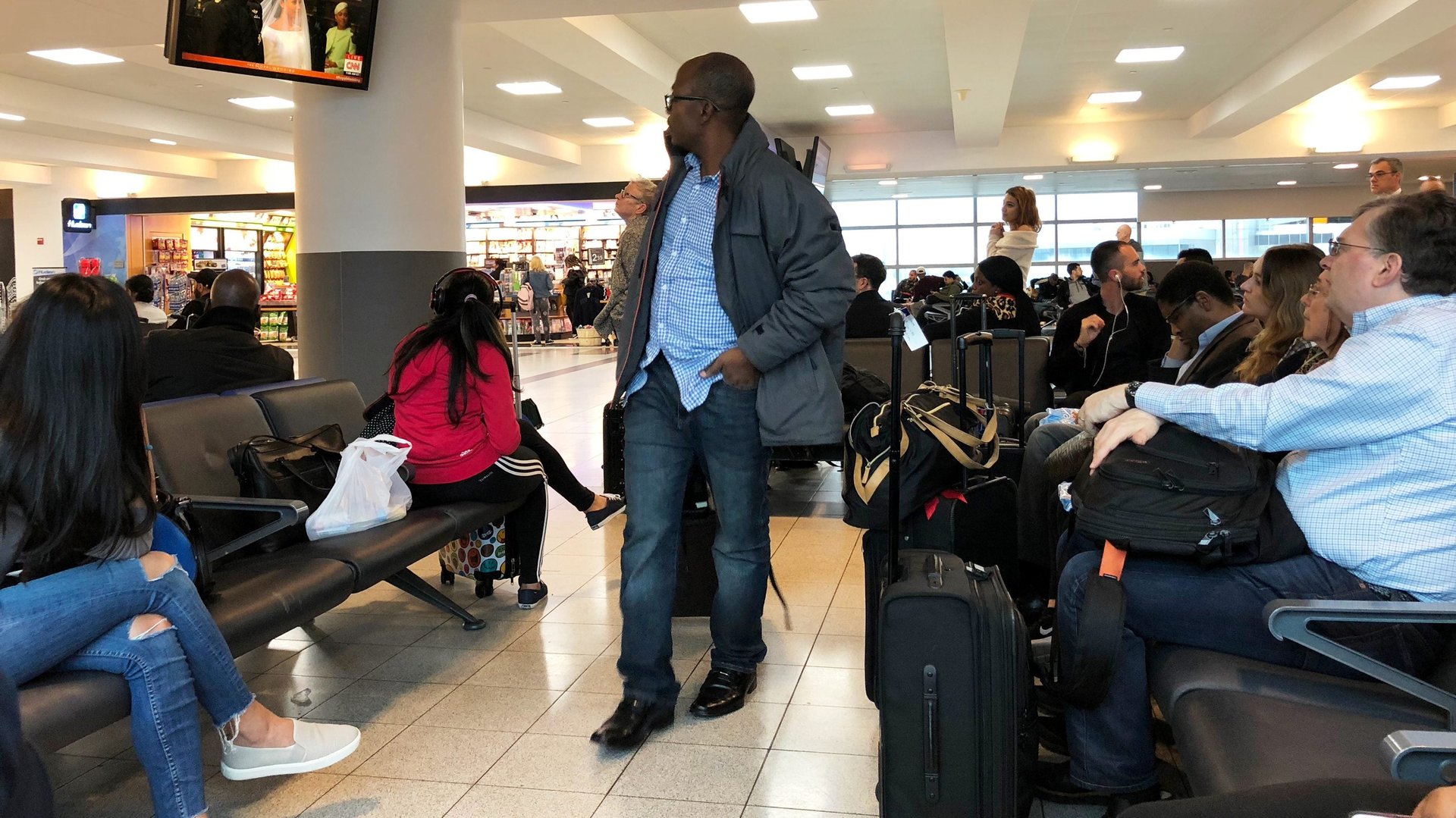Nigeria had the biggest drop in visitors to the US last year as Trump’s visa policies took hold
The travel measures taken against Nigeria by the United States last year are starting to have a clear and, potentially, long-term effect.


The travel measures taken against Nigeria by the United States last year are starting to have a clear and, potentially, long-term effect.
Data from the US travel and tourism office shows Nigeria recorded the largest global drop-off in visitors to the US. As of October 2019, 34,000 fewer Nigerians traveled to the US compared to the previous year—a 21% drop. After a sustained period of growth between 2011 and 2015, the number of Nigerian visitors to the US started to plateau in 2016 until the big drop-off last year.
The second largest drop was for visitors from Venezuela (17.7%). The South American country is in the midst of an economic and political crisis which has seen more than four million people flee the country and the US is restricting entry to Venezuelan migrants.
The dip in Nigerian visitors to the US followed a string of visa clampdown measures by the Trump administration targeting Africa’s largest economy.
After indefinitely suspending its visa interview waiver for Nigerian applicants (the waiver allowed frequent travelers renew their visa without going through in-person interviews each time), the Trump administration also raised visa application fees for Nigerians by including additional “reciprocity fees” ranging from $80 to $303 depending on the class of visa. And even though the Nigerian government immediately slashed visa application fees for American applicants in a bid to get the US to reverse its price increase, the reciprocity fees remain in place.
The measures followed reports that the Trump administration was looking to impose visa restrictions on countries whose citizens have a track record of overstaying beyond the validity of their short-term US visas. As it turns out, Nigerians were the highest ranked African country for US visa overstays in 2018.
Even though official data confirms the effects of the measures, there were already warning signs the administration’s policies were having an adverse impact on potential travelers. The policies also spawned fear-fueled rumors among locals as well: mid-last year, the United States embassy in Nigeria was forced to deny a widespread rumor that it had placed a ban on issuing student visas to Nigerians.
The tougher overall visa stance by the Trump administration comes at an inopportune time for middle class Nigerians who are increasingly emigrating amid fears of economic uncertainty back home. Nigeria’s once promising economy remains mired in sluggish growth since a 2016 recession while unemployment continues to climb. With many middle class professionals searching for alternatives, the number of Nigerians seeking legal immigration pathways to the US, UK and, increasingly, Canada, has risen sharply over the past half-decade.
But despite the Trump administration’s policies, the US remains a popular destination for Nigerian students seeking foreign degrees as the economic impact of spending by Nigerian students studying in the United States reached $514 million over the past academic year.
Sign up to the Quartz Africa Weekly Brief here for news and analysis on African business, tech and innovation in your inbox